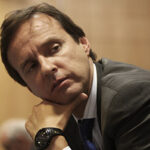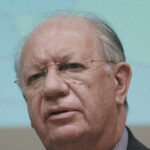The sixth Club de Madrid mission to Haiti (Dec. 19-22), paved the way towards political dialogue amongst Haitians and resulted in the announcement by the Presidency of key measures that will allow for institutional strengthening, a prerequisite for investment and development. Within the Club de Madrid’s Global Leadership for Haiti’s Reconstruction Project (with the financial support of the European Union), President Lagos of Chile, President Quiroga of Bolivia, President Torrijos of Panama as well as French Prime Minister Jospin led a delegation accompanied by Club de Madrid Secretary General Carlos Westendorp and the international expert Juan Gabriel Valdés. The delegation held working meetings with the international community, Haitian President Michel Martelly and key members of his government, Prime Minister Conille and with the Presidents of the Legislative assemblies, as well as with representatives from the judicial power, from the local authorities, from the private sector, from the civil society and from political parties.
Dec. 21, the Club de Madrid convened with President Martelly a Haitian Dialogue that for the first time after the earthquake brought to a Haitian-only table the main stakeholders of the political, economic and social life in Haiti. Under the title “A contribution to political consensus amongst Haitians. The political experience of the Club de Madrid at the service of Haiti’s future » participants, accompanied by representatives of the international community, discussed the need of common ground on which to build Haiti’s future.
At the end of the meeting, President Martelly who also opened the meeting, promised to reach in a short delay” “a political agreement with Parliament expected by all Haitians” and took on the commitment to implement four key actions that have tainted Haiti’s political life in recent months and prevented the implementation of key measures to promote investment and move forward from reconstruction and recovery to development and wellbeing. These measures include the release of the amended version of the constitutional reform approved, the appointment of the Supreme Court’s members, the naming of a neutral Permanent Electoral Council (CEP) and finally the holding of the elections to renew one third of the Senate and those of local authorities.
This meeting described by many as historical, is seen by the Club de Madrid as a first step in a much longer process that needs to be sustained and supported to put country back on the track of development.
At the end of the mission the European Union extended project implementation until March 2012 which will allow the Club de Madrid to continue activities in Haiti with a focus on investment and development.

